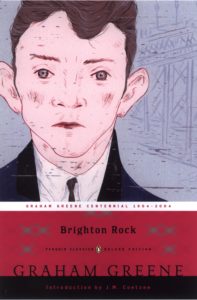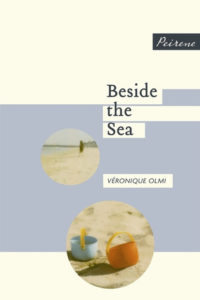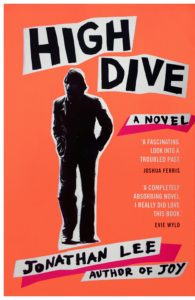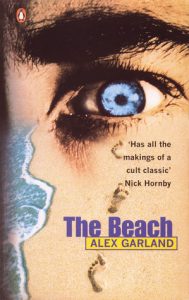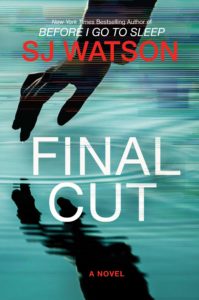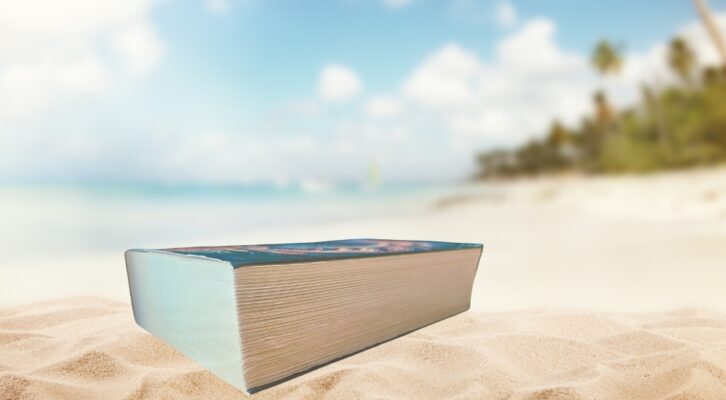There’s something about the sea, isn’t there? I grew up in the West Midlands, a sprawling conurbation slap bang in the middle of England. The landscape was largely uninterrupted by green spaces and it was about as far from the coast as it’s possible to get in that (admittedly relatively small) country. So for me the sea was something I saw only once or twice a year, on one of our family treks to Devon or Cornwall, where we’d stay in a battered caravan and my longed-for ice cream would inevitably be stolen by a seagull.
But despite (or perhaps because of) that I loved the ocean then and love it still. Whether it’s a tropical beach or towering waves crashing dramatically against the rocks, the sea always seems to mean something. It’s a threshold, quite literally. Liquid meets solid, sure, but order meets chaos too, the known against the unknowable. And it’s an edge, too. A step too far and all that is safe and secure suddenly disappears.
It’s for this reason I chose to set my new novel, Final Cut, in a seaside village in the north of England I named Blackwood Bay. The place is fictional, but based heavily on a real place, Robin Hood’s Bay, that nestles between Whitby and Scarborough and is unspeakably beautiful. The coastal location seemed to speak to the material for this book—whisperings of darkness and mystery, secrets refuse to remain hidden but instead float unexpectedly to the surface—and added another layer.
Here, then, are six more books set by the sea and which couldn’t be set elsewhere.
Brighton Rock, Graham Greene
Greene’s classic novel was published in 1938 and has been filmed twice. It’s a tense masterpiece, a thriller which sees classic anti-hero Pinkie striving to cover up his part in a gangland murder. To do this he must silence the sweetly innocent Rose, either by marriage (back then a woman could not be forced to testify against her husband) or death. Standing in his way is Ida, who is determined to find out the truth behind her friend’s murder and save Rose, first from Pinkie, and then from herself. Catholicism and guilt run through the novel, too, and it’s Pinkie who eventually learns that the hell he’s been fearing all his life might actually exist here on earth. If you haven’t read it, rectify that immediately.
Rebecca, Daphne du Maurier
Published in 1938, with one of the most recognizable first lines in literature and at least one character who has become iconic (Mrs. Danvers, of course), this is a dark, brooding psychological thriller, hauntingly beautiful, and with a killer plot. I love the way that du Maurier slowly tightens the screw until we have no idea who to trust. The setting resonates throughout, looming larger and larger until eventually the waves themselves play a vital part in the story. When I first read it my perception of what crime novels could be was forever altered, and I return to it again and again.
Beside the Sea, Veronique Olmi
A single mother takes her two young sons to the seaside, but we soon realize this might not be the fun family day out we’d thought. The place she’s taken them is drab, bleak and hostile. She’s on psychiatric medication, the trip has consumed all of her energy and, chillingly, she seems to have made no provision for the return journey. This short, poignant novel is beautifully written, and despite the dark subject matter manages to be sad without being morbid, maudlin or depressing.
High Dive, Jonathan Lee
We return to Brighton for this, that most evocative of seaside cities. The backdrop to the novel is the Provisional IRA’s (real life) attempt to kill then Prime Minister Margaret Thatcher and her cabinet when they stayed in the Grand Hotel for their party conference in 1984. It’s no spoiler to tell you the bomb went off, lives were lost, and Thatcher survived unscathed. But those those events are but a backdrop to the real story here, a device to keep the tension bubbling nicely as we watch our protagonists—the shadowy accomplice Dan, the hotel’s deputy-manager Moose, and his daughter Freya, circle each other in a narrative that bounces between Brighton and Belfast.
Death and the Seaside, Alison Moore
As beautifully written as you’d expect from the Booker short-listed author of The Lighthouse, this is a dense, multi-layered book, both a thriller and a metafiction about the life of a frustrated writer whose experiences begin to mirror those of her creation. It tells the story of Bonnie, the aforementioned writer, who is persuaded to take a trip to the seaside by her landlady, the strangely intrusive Sylvia, in order to visit her character’s fictional home. This short, deft novel certainly packs a punch and is one you’ll one to return to.
The Beach, Alex Garland
Garland’s debut, memorably turned into a film starring Leonardo DiCaprio, tells the story of a once-hidden paradise gone badly wrong. Richard is given a map to a hidden beach by a traveller (emphatically NOT a tourist) who then kills himself. Determined to reach this idyll, and with two new friends in tow, he sets out, though not without first copying the map for two backpackers with whom he has a casual acquaintance, an act which will have catastrophic consequences. This is a brilliant and eviscerating book, and it’s hard to believe either that it was Garland’s first, or that it was published over twenty years ago.
***


